Bangalore, also referred to as the Silicon Valley of India, is a city that offers some of the best government hospitals in Bangalore for affordable and reliable healthcare. These hospitals are important in providing medical care to everyone, especially those who cannot afford expensive private hospitals. They serve people from all parts of the city and even from nearby towns, ensuring that high-quality treatment is available to everyone, regardless of their financial situation.
Government hospitals in Bangalore are run by skilled doctors, nurses, and staff who work daily to care for patients. These hospitals treat various medical issues, from routine check-ups to emergencies. Despite handling many patients, they aim to give the best possible care. Many of these hospitals are also teaching centers where young doctors are trained, ensuring there will always be qualified medical professionals to serve the community.
Another reason why these hospitals are important is their focus on specialized care. Many government hospitals in Bangalore have departments dedicated to treating heart conditions, bone problems, cancer, and other illnesses. They also support national health programs, offering free or low-cost treatments for diabetes, tuberculosis, and more. This makes them a lifeline for people who cannot afford private healthcare.
In recent years, these hospitals’ infrastructure has improved significantly. Many now have modern equipment, advanced testing facilities, and updated operating theaters. While challenges like long waiting times still exist, these hospitals are working to make healthcare more accessible and efficient. They also actively run health programs, such as vaccination drives and awareness campaigns, to improve public health in Bangalore.
The best government hospitals in Bangalore are vital to the city’s healthcare system. They are committed to providing affordable care while keeping up with medical advancements, making healthcare accessible to all sections of society. These hospitals are a trusted source of hope and healing for many families.
Read More: Find Hospital Director/ Impactguru

Table of Contents
- List Of Best Government Hospitals In Bangalore
- 1) Victoria Hospital
- 2) Bowring and Lady Curzon Hospital
- 3) Sri Jayadeva Institute of Cardiovascular Sciences and Research
- 4) Kidwai Memorial Institute of Oncology
- 5) Bangalore Medical College and Research Institute
- 6) SDS Tuberculosis Research Center & Rajiv Gandhi Institute of Chest Diseases
- 7) Karnataka Institute of Endocrinology and Research
- 8) NIMHANS (National Institute of Mental Health & Neurosciences)
- 9) Indira Gandhi Institute Of Child Health (IGICH)
- Conclusion
List Of Best Government Hospitals In Bangalore
1) Victoria Hospital
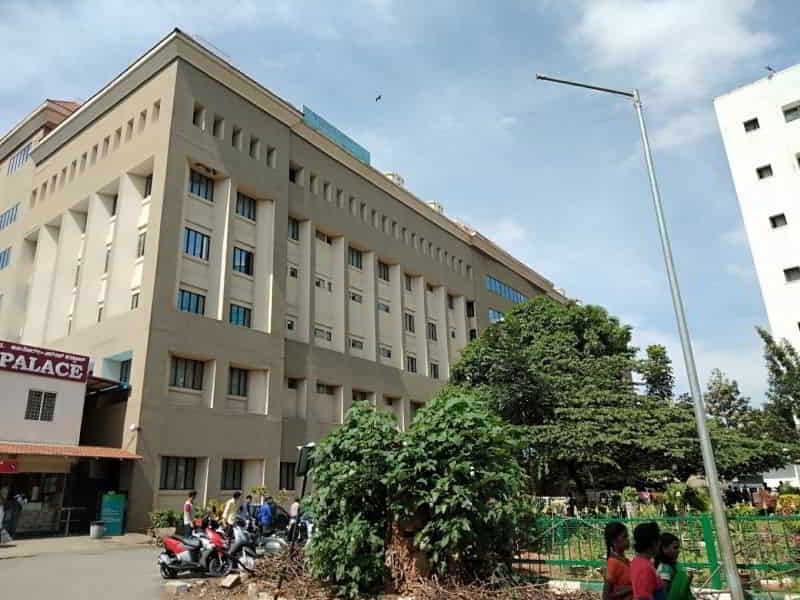
Victoria Hospital in Bangalore was established in 1900. It was inaugurated by Lord Curzon, the then Viceroy of India, and its foundation stone was laid by Her Highness Kempananjammani Avaru, the Maharani Regent of Mysore, to commemorate the 60th year of Queen Victoria’s reign. The hospital was envisioned by Shri Krishnaraja Wodeyar, the Maharaja of Mysore, and has since grown into one of the largest hospitals in India, reflecting the foresight and dedication of its founders.
Here are some of its notable achievements:
1. Expansion of Services: From its initial 140-bed capacity, the hospital now accommodates more than 1000 patients, offering various medical services.
2. Teaching and Research: As a teaching hospital attached to the Bangalore Medical College and Research Institute, it has contributed significantly to medical education and research in India.
3. Specialized Treatments: The hospital boasts super-specialty departments such as Plastic Surgery, Surgical and Medical Gastroenterology, Neurology, Neurosurgery, Cardiology, and Urology, providing cutting-edge treatments to patients.
4. Emergency Services: Victoria Hospital’s fully equipped emergency department offers round-the-clock care, including a well-equipped emergency operation theatre and a 24-hour laboratory for essential investigations.
5. Modernization: The hospital has kept pace with technological advancements, adding new buildings for Casualty and Emergency services, an OPD block, and a Super Specialty Block equipped with state-of-the-art equipment.
6. Community Outreach: Victoria Hospital has been instrumental in responding to public health crises, such as the plague epidemic in the late 19th century, showcasing its commitment to serving the community.
7. Blood Bank: The hospital houses a licensed blood bank with advanced facilities, operating 24/7 to meet patients’ critical needs.
8. Intensive Care: A 20-bed ICU with adequate ventilators and trained staff ensures that critically ill patients receive the best possible care.
2) Bowring and Lady Curzon Hospital
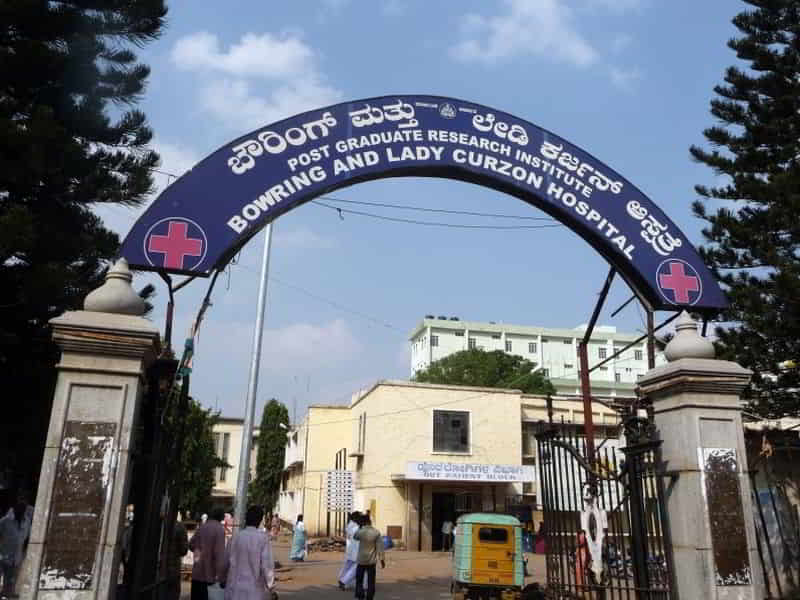
Established in Bangalore in 1868, Bowring and Lady Curzon Hospital was inaugurated by Mr. Lewin Benthon Bowring, the then Commissioner of Mysore. It was initially part of the Mysore State’s medical institution. In 1884, it transitioned to the Civil and Military Administration, marking a new era of medical service and education.
Over the years, Bowring and Lady Curzon Hospital has evolved into one of the premier government hospitals in Bangalore, renowned for its comprehensive healthcare services and educational contributions. Here are some of the hospital’s notable achievements:
– Medical Education: The hospital has been affiliated with the Bangalore Medical College and has served as a teaching hospital since the late 19th century, shaping generations of medical professionals.
– Research Contributions: During the COVID-19 pandemic, providing critical healthcare services and contributing to medical science through significant research work were pivotal.
Specialized Treatments:
– Cardiology: Pioneering treatments for cardiovascular diseases with state-of-the-art facilities.
– Obstetrics and Gynecology: Offering exceptional care for women and children, a legacy of its namesake, Lady Curzon.
– Orthopedics: Advanced care for musculoskeletal conditions, helping patients regain mobility and improve quality of life.
– Oncology: Providing cutting-edge cancer treatments and palliative care.
– Pediatrics: Committed to the health and well-being of children with modern pediatric services.
3) Sri Jayadeva Institute of Cardiovascular Sciences and Research
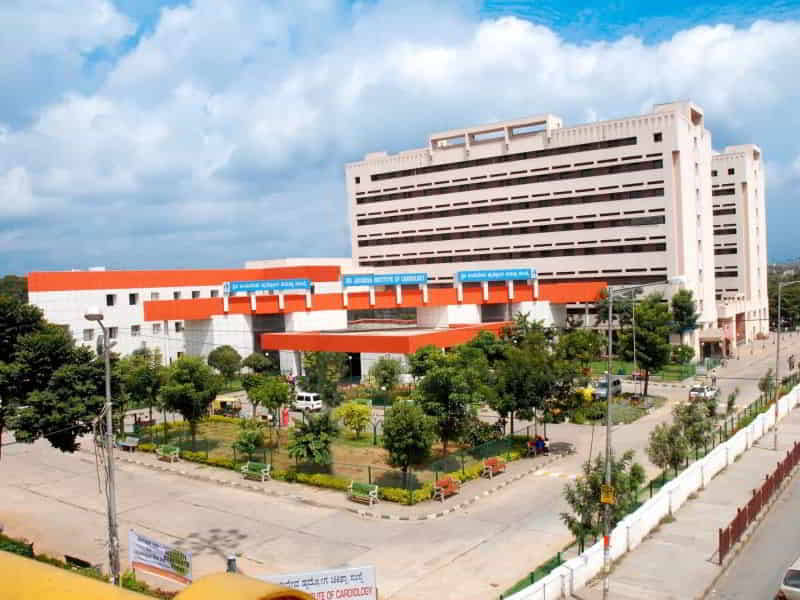
The institute began with a modest 350-bed facility and is now expanding to an impressive 1150-bed facility dedicated exclusively to cardiac care. The hospital’s patient-centric approach, advanced healthcare infrastructure, and competent medical care have set a benchmark in cardiology. Here are some remarkable achievements of the Sri Jayadeva Institute of Cardiovascular Sciences and Research:
– Cathlab Procedures: A staggering 60,295 cath lab procedures were performed in 2023, the highest number in the country.
– Angiograms and Angioplasties: The institute has achieved the highest volume in the country with 34,639 angiograms and 20,341 angioplasties with stenting.
– Cardiac Surgeries: A total of 4,733 bypasses, valve replacements, congenital heart disease, and other heart surgeries were conducted.
– Echo-Cardiograms: With 402,323 echo-cardiograms performed, the institute holds the record for the highest number in the world.
– NABH Accreditation: It is the first government heart institute in the country to receive NABH accreditation by the Quality Council of India, which was reaccredited in 2018 and 2021.
– Free Treatments: Thousands of poor patients have undergone angioplasties and open heart surgeries at free or subsidized rates, thanks to the institute’s resources and sponsorship from various donors.
4) Kidwai Memorial Institute of Oncology
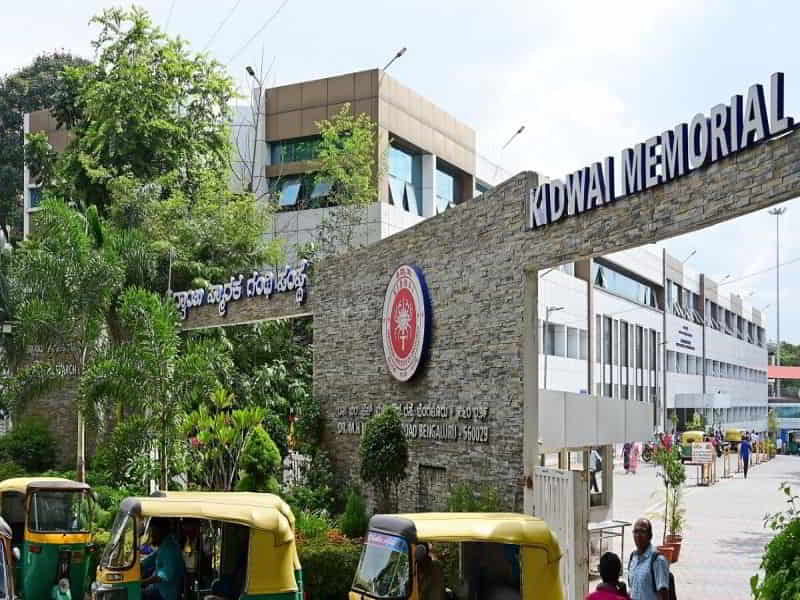
Kidwai Memorial Institute of Oncology, Bangalore, was established on June 26, 1973. The institute was named after Rafi Ahmed Kidwai, a prominent figure in Indian politics and a passionate advocate for social causes. His significant contribution included 20 acres of land and funds for the first radiotherapy machine, marking the start of a new era in cancer treatment & research in India.
Kidwai Memorial Institute of Oncology has achieved remarkable milestones in cancer care as an autonomous institution under the Government of Karnataka. The Government of India granted its Regional Cancer Center status on November 1, 1980, recognizing its pivotal role in oncology research and treatment. The institute’s commitment to excellence is further evidenced by its affiliation with the Rajiv Gandhi University of Health Sciences for academics and its recognition by the Indian Council of Medical Research as a research organization.
The achievements of Kidwai Memorial Institute of Oncology are numerous and noteworthy:
– Recognized as a member of the Union for International Cancer Control & the World Health Organization.
– Offers comprehensive training in various oncology sub-specialties to postgraduate and undergraduate students, interns, nurses, and scientists.
– Acknowledged as a charitable institute by the Endowment Department of Karnataka, providing affordable cancer care to the economically disadvantaged.
– Implements various financial assistance schemes for patients, including free drugs and support from the Kidwai Cancer Drug Foundation, where anti-cancer drugs are offered at significantly reduced prices.
5) Bangalore Medical College and Research Institute
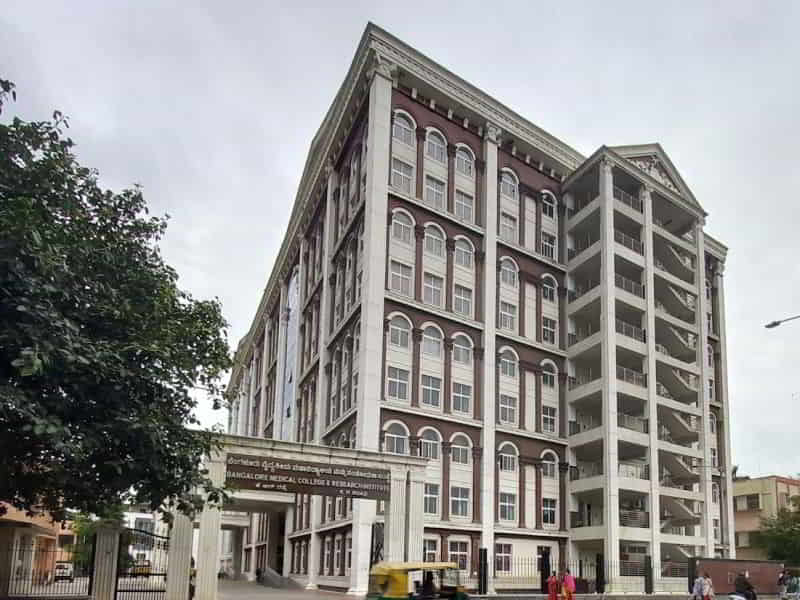
Bangalore Medical College and Research Institute, founded in 1955, is a premier medical institution in Bangalore. Founded by the Mysore Education Society with notable founders such as Dr. R. Shivaram, Dr. Mekhri, Dr. B.K. Narayana Rao and Dr. B.V. Ramaswamy, BMCRI was initially a private medical school. It was later handed over to the Government of Mysore and has since been affiliated with the Rajiv Gandhi University of Health Sciences.
The Medical Council of India acknowledges the institute & offers various undergraduate and postgraduate programs, including super-specialty seats in disciplines such as Plastic Surgery and Cardiology. The institution also provides fellowship programs in multiple fields, such as Vitreo-Retina, Surgical Gastroenterology, and Cosmetic Dermatology.
The attached hospitals, including the Victoria Hospital and Vani Vilas Women and Children’s Hospital, cater to many medical and surgical conditions. They are supported by well-equipped laboratories and round-the-clock services. These facilities serve the urban and rural districts of Bangalore and function as a referral center for the entire state.
6) SDS Tuberculosis Research Center & Rajiv Gandhi Institute of Chest Diseases
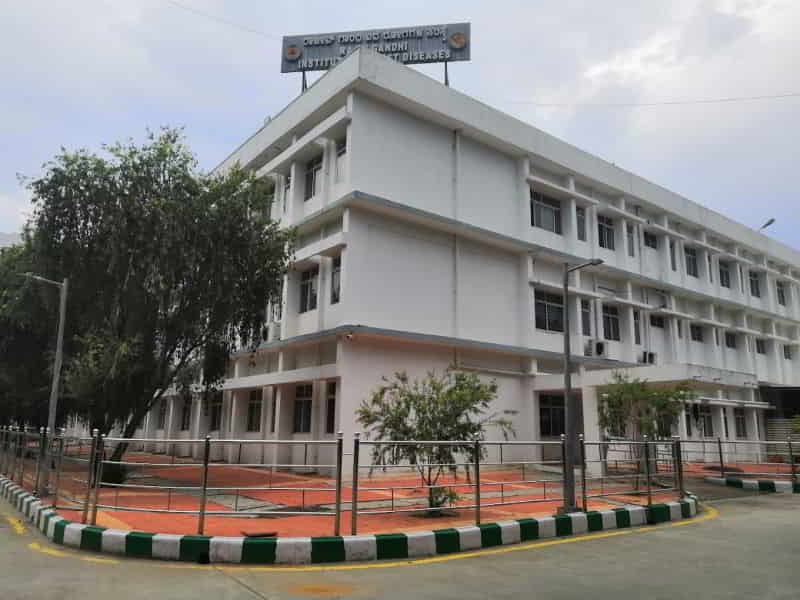
Started in 1948, this institution was initially named after Shanthabai Devarao Shivaram as the Shanthabai Devarao Shivaram Tuberculosis Sanatorium. It was later associated with the Bangalore Medical College and Research Institute and renamed to honor the late Prime Minister Rajiv Gandhi.
As a government-run autonomous tertiary care super-specialty referral institution, it boasts two central departments: the Department of Pulmonary Medicine & the Department of Thoracic Surgery. These departments are supported by dedicated teaching, non-teaching staff, and support staff. The center has 470 beds and sprawls over 44 acres in the heart of Bangalore, catering to the needs of Karnataka, neighboring states, and even patients from surrounding countries.
The achievements of the SDS Tuberculosis Research Center & Rajiv Gandhi Institute of Chest Diseases are numerous and noteworthy:
– It is a state referral center for pulmonary medicine and thoracic surgery, which manages all thoracic emergencies.
– The center has been pivotal in the treatment of tuberculosis, a significant cause of mortality and morbidity in the region.
– It offers specialized treatment for tuberculosis and its complications, both medically and surgically, at a cost-effective rate.
– The institution functions as a chest injury and trauma care referral hospital.
– It provides comprehensive training for undergraduate and postgraduate students in various medical disciplines, enhancing clinical and surgical experience in pulmonary disease management.
– In 2009, to improve clinical services and academic activities, the Government of Karnataka accorded it autonomous status, aiming to make it a Centre of Excellence in respiratory disorders.
7) Karnataka Institute of Endocrinology and Research
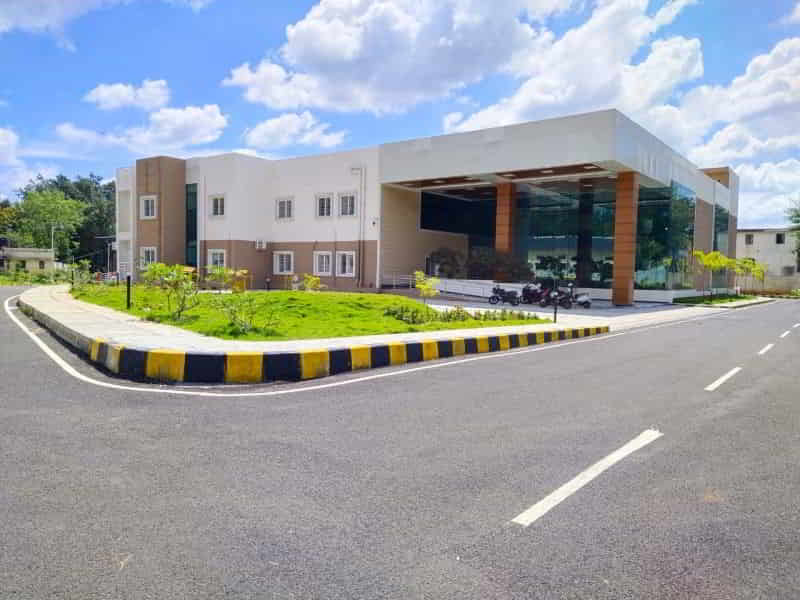
Established in 2007 as the Karnataka Institute of Diabetology, it was later renamed in 2016 to reflect its broader focus on endocrinology and research. This institute is not just a hospital; it’s a comprehensive care center dedicated to the nuanced field of endocrinology. Over the years, its services have expanded to include diagnosis, treatment, education, training, and research in various endocrine disorders. The institute boasts state-of-the-art facilities and departments such as Endocrinology, Podiatry, Vitreo Retina, and Nephrology, equipped with modern equipment to deliver exceptional patient care.
Here are some of the notable achievements of KIER:
– Successfully provided holistic diabetes care to over one lakh and forty-three thousand individuals, offering a comprehensive approach to diabetes management.
– Conducted nearly 500 seminars on diabetes and other endocrine disorders, contributing significantly to the continuous medical education of healthcare professionals.
– Established a diabetic foot registry in 2016, which has been instrumental in tracking and managing diabetic foot conditions, a common complication among diabetes patients.
– Achieved a significant number of minor and major procedures to combat diabetic foot conditions, with an amputation rate maintained between 8% and 10%, reflecting the institute’s dedication to preserving patients quality of life.
8) NIMHANS (National Institute of Mental Health & Neurosciences)
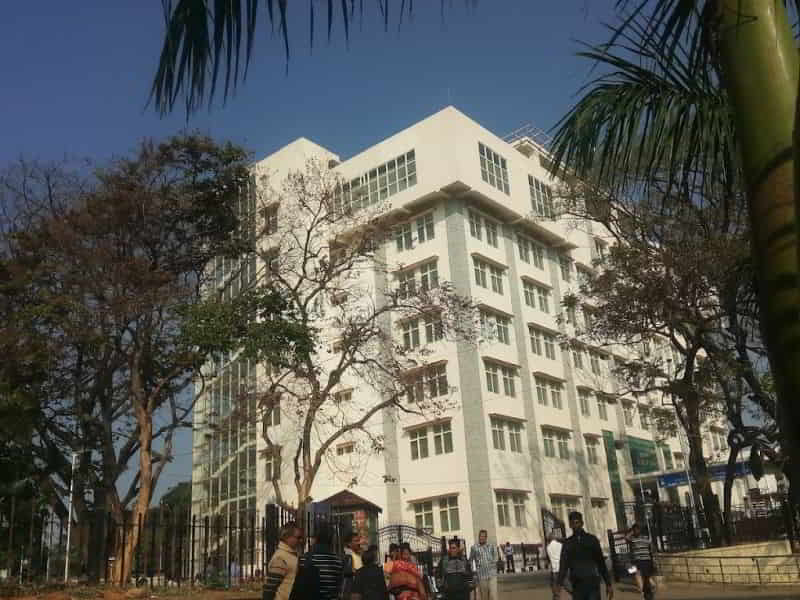
Established in the mid-19th century, the Bangalore Lunatic Asylum, which later became NIMHANS, was founded in 1847 by Dr. Charles Irwing Smith. It marked the beginning of structured mental health care in the region.
Over the years, NIMHANS has become an apex center for mental health & neuroscience education in India. It was declared an Institute of National Importance in 2012, reflecting its significance in the country’s healthcare landscape. Here are some of the notable achievements of NIMHANS:
– Pioneering postgraduate training in psychiatry in India.
– Establishing a multidisciplinary approach integrating mental health and neurosciences.
– Significant contributions to community mental health, leading to the establishment of NIMHANS-like institutions nationwide.
– Advancements in neurosurgery and psychiatric treatments are setting benchmarks for care in these fields.
9) Indira Gandhi Institute Of Child Health (IGICH)
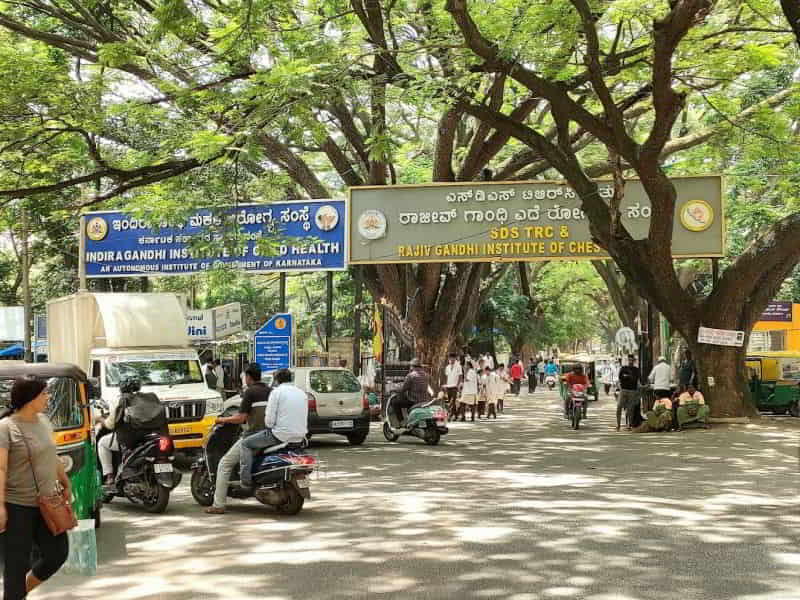
IGICH in Bangalore, established in 1985 and operational since 1991, is a testament to Dr. D.G. Benakappa’s vision, who sought to address the dire need for child health services in Karnataka. As a premier government-run pediatric care institution, IGICH has expanded its services to include a 475-bed hospital with specialized units like Pediatric Intensive Care and Neonatal Intensive Care, accredited as Level 3B by the National Neonatology Forum.
The institute is renowned for its comprehensive pediatric healthcare. It offers postgraduate training in pediatrics and super-specialty courses such as Pediatric Surgery and fellowships in critical care, endocrinology, genetics, and neurology, among others. Its commitment to child health is further exemplified by its state-of-the-art facilities and contributions to treating complex conditions, making it one of the best government hospitals in Bangalore.
Become a part of a larger mission.
Tap the link, share it, and invite more helpers.
Impact starts with tiny steps.
Conclusion
In conclusion, the best government hospitals in Bangalore provide quality healthcare that is affordable & accessible to everyone. They are a lifeline for many needy people, offering specialized treatments and support for various medical conditions. However, even with affordable care, specific medical treatments and emergencies can still financially overwhelm some families. In such situations, crowdfunding platforms can be a great way to raise funds quickly. These platforms allow people to seek help from friends, family, and even strangers to cover the costs of surgeries, specialist treatments, or long-term care. With the proper support, everyone can access medical care without financial barriers.












